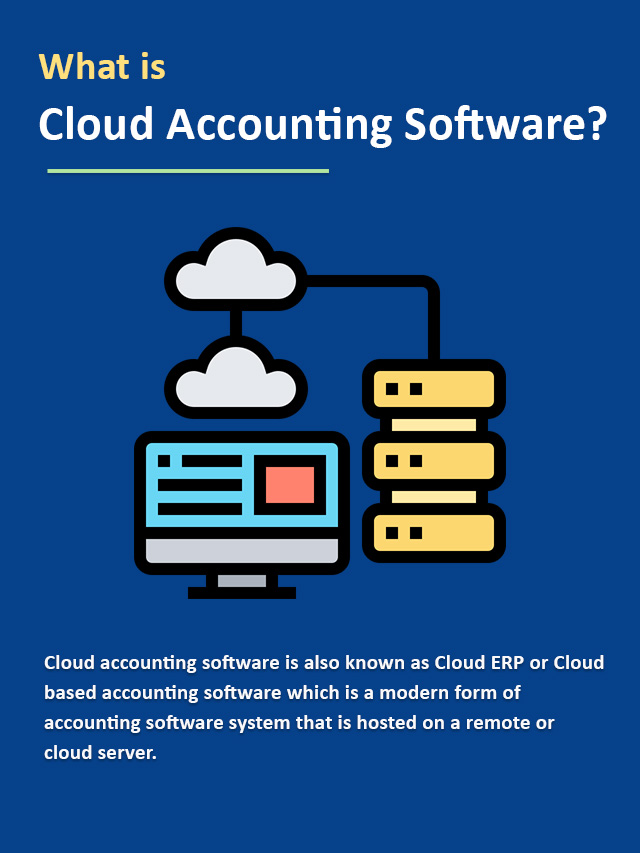In today’s fast-paced business world, staying on top of finances is crucial for success. Traditional accounting methods, such as manual bookkeeping and desktop accounting software, are becoming outdated and inefficient. Cloud accounting software has revolutionized the way businesses manage their finances, providing a more efficient, secure, and cost-effective solution. In this article, we will explore the benefits of cloud accounting software, its features, and how it can transform your financial tracking.

What is Cloud Accounting Software?
Cloud accounting software is a type of accounting software that is hosted on remote servers and accessed through the internet. This means that users can access their financial data from anywhere, at any time, using any device with an internet connection. Cloud accounting software provides a range of features, including invoicing, expense tracking, budgeting, and financial reporting, to help businesses manage their finances effectively.
Benefits of Cloud Accounting Software
Cloud accounting software offers numerous benefits over traditional accounting methods. Some of the most significant advantages include:
- Accessibility: Cloud accounting software allows users to access their financial data from anywhere, at any time, using any device with an internet connection. This makes it ideal for businesses with multiple locations or remote workers.
- Scalability: Cloud accounting software can grow with your business, providing the flexibility to add or remove users, and adjust features as needed.
- Cost-Effective: Cloud accounting software eliminates the need for expensive hardware and software upgrades, reducing IT costs and minimizing the risk of data loss.
- Security: Cloud accounting software provides robust security measures, including encryption, firewalls, and backup systems, to protect sensitive financial data.
- Collaboration: Cloud accounting software enables multiple users to access and work on financial data simultaneously, improving collaboration and reducing errors.
- Automatic Updates: Cloud accounting software providers regularly update their software, ensuring that users have access to the latest features and security patches.
- Integration: Cloud accounting software can integrate with other business applications, such as CRM and payroll software, to provide a comprehensive view of business operations.
Features of Cloud Accounting Software
Cloud accounting software provides a range of features to help businesses manage their finances effectively. Some of the most common features include:
- Invoicing: Create and send professional-looking invoices to customers, with options for online payment and automatic reminders.
- Expense Tracking: Track and categorize business expenses, including receipts, invoices, and bank statements.
- Budgeting: Create and manage budgets, with alerts and notifications to help stay on track.
- Financial Reporting: Generate financial reports, including balance sheets, income statements, and cash flow statements.
- Bank Reconciliation: Reconcile bank statements with accounting records, to ensure accuracy and detect any discrepancies.
- Payroll Management: Manage payroll, including employee salaries, benefits, and taxes.
- Inventory Management: Track and manage inventory levels, with alerts and notifications to prevent stockouts and overstocking.
Choosing the Right Cloud Accounting Software
With so many cloud accounting software options available, choosing the right one for your business can be overwhelming. Here are some factors to consider:
- Business Size: Choose a cloud accounting software that is tailored to your business size, whether it’s small, medium, or large.
- Features: Consider the features you need, such as invoicing, expense tracking, and budgeting.
- Security: Ensure that the cloud accounting software provides robust security measures, including encryption and backup systems.
- Integration: Consider the ability to integrate with other business applications, such as CRM and payroll software.
- Customer Support: Choose a cloud accounting software provider that offers excellent customer support, including online resources, phone support, and training.
- Pricing: Consider the pricing model, including monthly or annual subscription fees, and any additional costs for features or support.
FAQ
- What is the difference between cloud accounting software and desktop accounting software?
Cloud accounting software is hosted on remote servers and accessed through the internet, while desktop accounting software is installed on a local computer. - Is cloud accounting software secure?
Yes, cloud accounting software provides robust security measures, including encryption, firewalls, and backup systems, to protect sensitive financial data. - Can I access cloud accounting software from any device?
Yes, cloud accounting software can be accessed from any device with an internet connection, including desktops, laptops, tablets, and smartphones. - How much does cloud accounting software cost?
The cost of cloud accounting software varies depending on the provider, features, and business size, with monthly or annual subscription fees ranging from $10 to $100 or more. - Can I integrate cloud accounting software with other business applications?
Yes, many cloud accounting software providers offer integration with other business applications, such as CRM and payroll software.
Conclusion
Cloud accounting software has revolutionized the way businesses manage their finances, providing a more efficient, secure, and cost-effective solution. With its accessibility, scalability, and robust security measures, cloud accounting software is ideal for businesses of all sizes. By considering the features, pricing, and customer support, you can choose the right cloud accounting software for your business and transform your financial tracking. Whether you’re a small startup or a large corporation, cloud accounting software can help you streamline your financial operations, reduce errors, and make informed business decisions. So why not make the switch to cloud accounting software today and take your business to the next level?
Closure
Thus, we hope this article has provided valuable insights into The Evolution of Financial Tracking: Cloud Accounting Software. We hope you find this article informative and beneficial. See you in our next article!